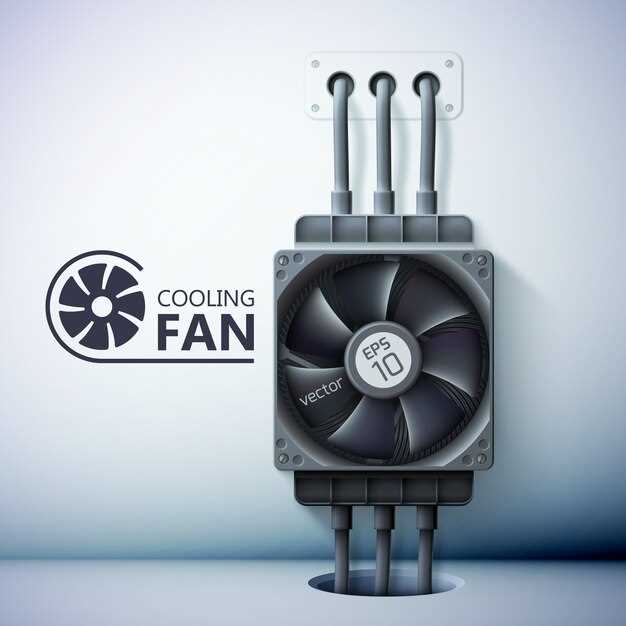
In the relentless pursuit of enhanced engine performance, the importance of effective cooling solutions cannot be overstated. A radiator plays a crucial role in maintaining optimal temperatures within a high-performance engine, ensuring that it operates efficiently under demanding conditions. As engines generate significant amounts of heat during operation, inadequate cooling can lead to decreased efficiency, increased wear, and potential failures.
The integration of advanced cooling technologies not only prolongs the lifespan of engine components but also enhances overall performance. In high-performance applications, where every horsepower counts, maximizing engine efficiency becomes a priority. By understanding the various cooling methods, such as liquid-cooled and air-cooled systems, automotive enthusiasts and engineers can select the right solutions to meet their specific requirements.
Ultimately, the relationship between a radiator and engine performance is pivotal. Selecting appropriate cooling solutions allows for optimal thermal management, reducing the risk of overheating and ensuring that the engine can operate at peak efficiency under a range of conditions. As technology advances, so do the strategies to achieve superior cooling, making it an essential aspect of modern engine design.
Advanced Radiator Designs for Optimal Heat Dissipation

In the realm of high-performance engines, the efficiency of cooling systems plays a critical role in maintaining optimal operating temperatures. Advanced radiator designs have emerged as a cornerstone for achieving superior heat dissipation in these powerful engines.
One key innovation in radiator technology is the use of multi-flow core designs, which enhance thermal conductivity by increasing the surface area available for heat exchange. This design facilitates better coolant flow through the radiator, allowing for quicker heat removal from the engine block. As a result, engines can maintain optimal temperatures even under extreme performance conditions.
Another significant advancement is the incorporation of heat-exchanging materials such as aluminum and specialized coatings that improve thermal transfer. These materials not only reduce weight compared to traditional copper radiators but also provide enhanced resistance to corrosion, ensuring longevity and reliability in high-performance scenarios.
Furthermore, active cooling systems are gaining traction. These systems utilize electronic fans that adjust their speed based on engine temperature and load, providing dynamic airflow that maximizes cooling efficiency. By actively managing airflow, these systems can prevent overheating and ensure consistent performance during rigorous driving conditions.
Additionally, the implementation of fluid dynamics simulations during the design phase has revolutionized how engineers create radiators. These simulations allow for precise modeling of coolant flow, enabling designers to predict and optimize the performance of radiators before physical prototypes are built. This advanced approach leads to more efficient radiator designs tailored specifically for high-performance applications.
In summary, the evolution of radiator technology plays a vital role in enhancing the cooling capabilities of high-performance engines. By leveraging innovative designs, materials, and technologies, modern radiators ensure optimal heat dissipation, contributing to improved engine efficiency and reliability.
Choosing the Right Coolant for Enhanced Engine Longevity
Selecting the appropriate coolant is critical for maintaining optimal cooling performance and extending engine life. The right coolant can efficiently transfer heat away from engine components, thus preventing overheating and mitigating wear and tear.
Types of Coolants include ethylene glycol and propylene glycol-based formulas. Ethylene glycol is widely used due to its excellent thermal properties and low freezing point, making it suitable for high-performance engines. However, propylene glycol, while less efficient, is less toxic and more environmentally friendly, offering a safer alternative for certain applications.
Additionally, coolant additives play a significant role in enhancing engine protection. These additives can prevent corrosion, reduce cavitation, and inhibit scale formation within the cooling system. When selecting a coolant, ensure it contains the necessary inhibitors tailored for your engine materials, as compatibility is essential for preventing damage.
Cooling Capacity is another vital consideration. The selected coolant must effectively manage the operating temperature range of your engine. High-performance engines generate substantial heat, requiring a coolant with excellent heat-transfer qualities. A lower viscosity at high temperatures ensures better circulation, directly impacting cooling efficiency.
The coolant-to-water ratio can also influence engine longevity. A typical mix of 50% coolant and 50% distilled water provides optimal freezing and boiling point protection. Deviating from this ratio may lead to overheating, especially in performance-driven settings.
Lastly, regular maintenance of the cooling system is essential. Check coolant levels, inspect for leaks, and schedule periodic flushes to remove contaminants. Keeping the cooling system clean ensures that the chosen coolant performs effectively over time, further extending engine longevity.
In summary, choosing the right coolant requires careful consideration of its type, additives, cooling capacity, proper dilution, and maintenance practices. A well-selected coolant enhances engine durability, ensuring your high-performance engine operates efficiently for years to come.
Impact of Cooling System Maintenance on Engine Performance

Proper maintenance of the cooling system is crucial for optimal engine performance. The radiator plays a vital role in dissipating heat generated during engine operation. Without effective heat management, the engine can overheat, leading to diminished power output and potential damage.
Regular checking of coolant levels and ensuring that the radiator is free from debris can significantly enhance the cooling efficiency. Clogged or damaged radiators impede coolant flow, raising the engine temperature. This overheating can result in severe mechanical failures, including warped cylinder heads and blown gaskets.
Additionally, maintaining the integrity of the cooling system components, such as hoses and water pumps, is essential. Worn or leaking hoses can cause coolant loss, leading to inadequate cooling. Frequent inspections and timely replacements of these parts help sustain engine efficiency and longevity.
Furthermore, regular coolant flushes can prevent the build-up of rust and scale inside the radiator. Contaminated coolant diminishes its thermal transfer properties, affecting the overall cooling system performance. By keeping the coolant clean and at the appropriate level, drivers can ensure that the engine operates within its optimal temperature range.
In conclusion, neglecting cooling system maintenance can lead to compromised engine performance and costly repairs. A well-maintained radiator and cooling system are indispensable for the reliability and efficiency of high-performance engines.



